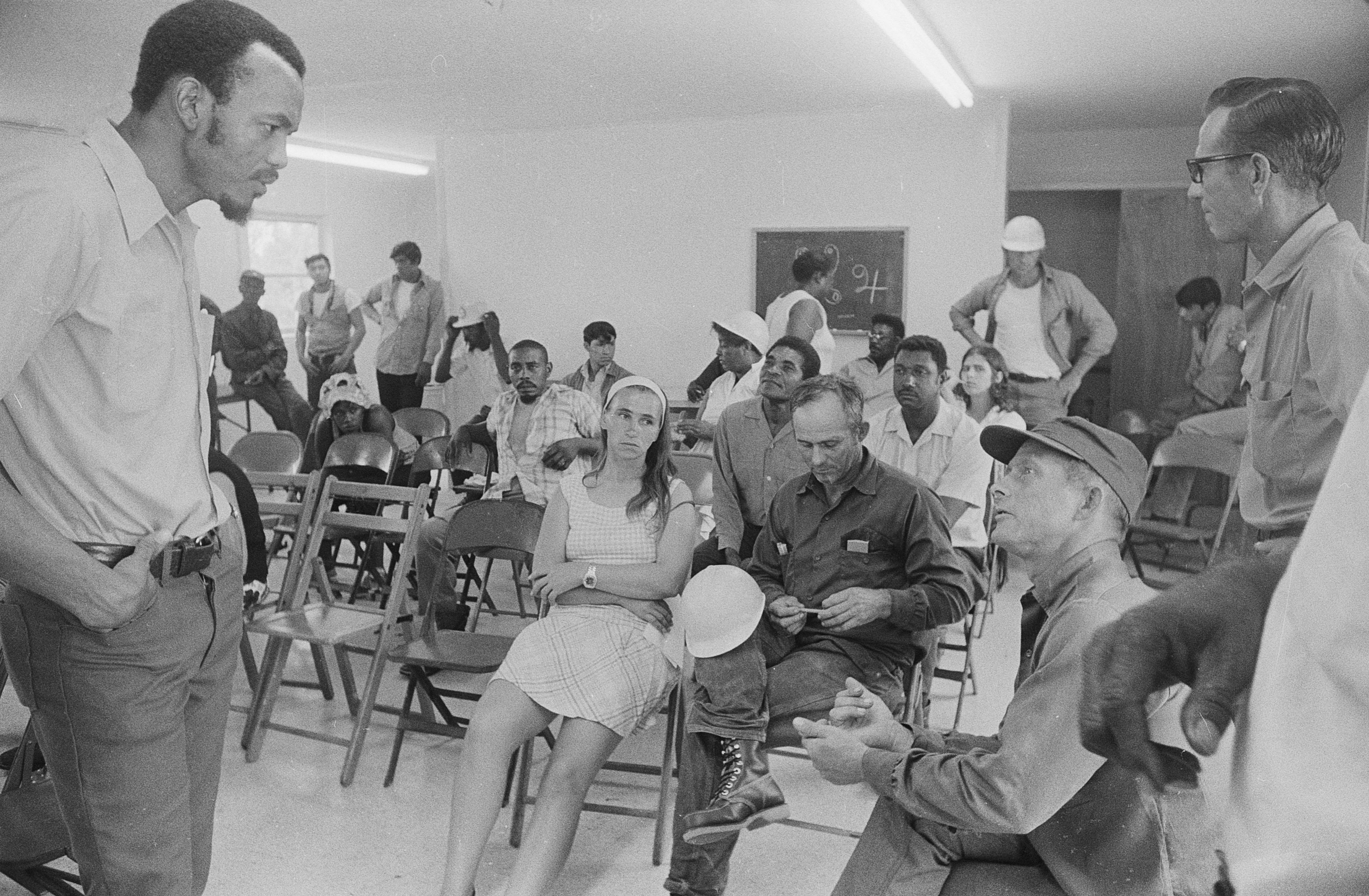Union Contract in Florida
Union Contract in Florida
UFW organizer Mack Lyons, other organizers, volunteers and farm workers walk next to Minute Maid buses, Florida, 1972. Photo by John Kouns.
In the late 1960s, effective boycotts led by the United Farm Worker (UFW) inspired Florida workers to unionize. In 1971, UFW volunteers enlisted 75% of Minute Maid’s Florida workers, a company owned by Coca-Cola. Following an election, the UFW became the union for Coca-Cola Minute Maid workers, leading to a groundbreaking three-year agreement in 1972. Despite modest resources, Manuel Chávez and Jerry Cohen negotiated a historic contract between Black, Mexican American, and white farm workers and the state’s largest citrus producer, marking Florida’s first citrus worker contract. The agreement held historical relevance not only for the UFW but also for the U.S. South. Earlier efforts by citrus workers affiliated under the Congress of Industrial Organizations (CIO) in the 1930s and 1940s had only led to minor pay improvements and, in some cases, to Ku Klux Klan backlash.
By 1972, when the UFW contract was established, Florida’s agricultural system still echoed the legacy of plantation-era slavery. Farmers owned the land and contracted crew leaders who managed groups of workers, often subjecting them to debt and limited options. “Florida’s modern agriculture—wrote UFW member Roberta “Robbie” Jaffe in an essay for the Farmworker Movement Documentation Project of the University of California, San Diego—was still rooted in the culture of plantation days’ slavery.” The UFW contract dismantled the crew leader system. Aside from improving wages and benefits, it introduced hiring halls which were crucial in restoring workers’ control over hiring practices.
UFW organizers Mack Lyons and Walter Williams attend a meeting at the union field office in Avon Park, Florida, 1972. Photo by John Kouns.
UFW organizers Dianna Lyons, Mack Lyons, and their son Rick Lyons at the union office, Haines City, Florida, 1972. Photo by John Kouns.
The UFW office in Florida was a former funeral parlor in Avon Park and it became a hiring hall and a service center where Mack and Diana Lyons administered the contract. In 1973, recognizing the significance of hiring halls for farm worker empowerment, growers lobbied for a “right to work” bill to revive the crew leader system. UFW organizers went to Tallahassee to oppose the bill. During a hearing, farm workers like Theodore Johnson testified before the Sub-committee, recounting their captivity under their crew leaders. Ultimately, the bill was defeated. In 1975, renewing the Coca-Cola contract met obstacles, strikes were impractical due to replacement workers and limited funds, and boycott threats had lost credibility, leading the UFW to organize smaller protests, fasts, and sit-ins. Coca-Cola eventually renewed the contract in November, and in 1976 Mack and Diana returned to Sacramento to support California’s labor legislation.
Tom & Ethel Bradley Center
California State University, Northridge
18111 Nordhoff Street, Northridge, CA 91330
Phone: (818) 677-1200 / Contact Us


